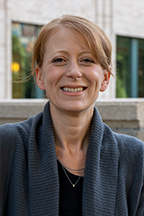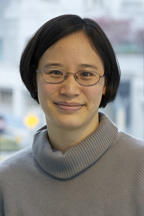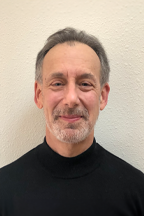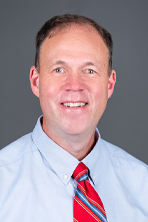About
The Oregon Alzheimer's Disease Research Center (OADRC) is one of 35 NIA-funded Alzheimer's Research Disease Centers in the U.S. Our center is recognized as a national leader in dementia care and research and the only one of its kind in Oregon.
The OADRC aims to discover new insights into brain aging with the ultimate goal of improving brain health, disease management and treatment for both patients and caregivers.
Specific areas of focus include:
• Risk factors that may accelerate Alzheimer's disease and related dementias, especially those that may be modified such as sleep and vascular issues
• Groups underrepresented in research including the oldest old, African Americans, and isolated older adults such as those living alone or in rural communities
• Innovative in-home digital technology that allows for continuous objective monitoring of activity, sleep, and other important lifestyle metrics
Our center utilizes state-of-the-art approaches to clinical assessments including neuroimaging, radiological-pathological correlations and biomarkers. We aim to widely share technological and statistical tools, resources, and data with not only the scientific community but also the public and other key stakeholders.
Directors

Lisa Silbert, MD, MCR, FAAN
Principal Investigator
Program Director
Administrative Core Co-Lead
Neuroimaging Core Lead

Miranda Lim, MD, PhD
Principal Investigator
Program Director
Administrative Core Co-Lead

Jeff Kaye, MD
Associate Director
Digital Technology Core Co-Lead

Kevin Duff, PhD, ABPP-CN
Associate Director
Clinical Core Co-Lead
Data Core Associate Lead
All personnel
Vimal Aga, MD - Co-Investigator (Clinical Core)
Aberash W. Assefa, DNP, MSN - Research Nurse Practitioner
Zach Beattie, PhD - Digital Technology Core Lead
Alana Castle - Clinical Research Associate
David Clark - Histotechnologist
Tera Clay - Research Data Analyst
Kevin Cosgrove - Research Engineer
Raina Croff, PhD - Outreach, Recruitment & Engagement Core Co-Lead,
Co-Investigator (Clinical Core)
Gillian Devereux, RN, MPH - Nurse Coordinator
Kevin Duff, PhD, ABPP-CN - Associate Director, Clinical Core Co-Lead, Data Core Associate Lead
Patrice Fuller - Research Assistant
Audrey Gobeo - Research Associate/Assessor
Antonia Gragg, MHS PA-C - Research Physician Associate/Instructor
Nora Gray, PhD - Biomarker Core Co-Lead
Elise Hanna - Assessor
Nathan Hantke, PhD - Co-Investigator (Clinical Core)
Stephanie Irish - Field Technician
Jeff Kaye, MD - Associate Director, Digital Technology Core Co-Lead
Victoria Krajbich - Senior Research Assistant
Benny Kuang - Field Technician
David Lahna - Research Data Analyst
Cierra Leon-Guerrero - Assessor
Emily Leonard - Senior Clinical Research Assistant
Miranda Lim, MD, PhD - Principal Investigator/Program Director, Administrative Core Co-Lead
Allison Lindauer, PhD, APRN - Outreach, Recruitment & Engagement Core
Co-Lead, Co-Investigator (Clinical Core)
Aimee Lynch - Research Assistant
Nora Mattek, MPH - Research Data Analyst and Biostatistician
Andrew Natonson, MD - Co-Investigator (Clinical Core)
Barry Oken, MD, PhD - REC Co-Lead, Co-Investigator (Clinical Core)
Chanelle Parris - ORE Core Coordinator/Recruitment Specialist
Aimee Pierce, MD - Clinical Core Lead
Jeffrey Pollock, MD - Co-Investigator (Neuroimaging Core)
Joseph Quinn, MD - Biomarker Core Lead
Thomas Riley - Research Engineer
Nathaniel Rodrigues - Field Technician
Heather Schiffke, MATCM - Administrator
Daniel Schwartz - Computational Biologist
Lisa Silbert, MD, MCR, FAAN - Principal Investigator/Program Director, Administrative Core Co-Lead, Neuroimaging Core Lead
Joel Steele, PhD - Data Core Lead
Chelsea Thomas, MS - Data Integration Specialist
Henryk Urbanski, PhD, DSc - Research Education Component Lead
Cherie Valenzuela - Communications Coordinator and Research Liaison
Dara Wasserman - Research Associate
Sylvia White, ND - Research Clinician
Randy Woltjer, MD, PhD - Neuropathology Core Lead
Lisa Silbert, MD, MCR, FAAN - Principal Investigator/Program Director, Core Co-Lead
Miranda Lim, MD, PhD - Principal Investigator/Program Director, Core Co-Lead
Jeff Kaye, MD - Associate Director
Kevin Duff, PhD, ABPP-CN - Data Core Associate Lead
Heather Schiffke, MATCM - Administrator
Aimee Pierce, MD - Core Co-Lead
Kevin Duff PhD, ABPP-CN - Core Co-Lead
Lisa Silbert, MD, MCR, FAAN - Co-Investigator
Miranda Lim, MD, PhD - Co-Investigator
Jeff Kaye, MD - Co-Investigator
Barry Oken, MD, PhD - Co-Investigator
Allison Lindauer, PhD, APRN - Co-Investigator
Raina Croff, PhD - Co-Investigator
Andrew Natonson, MD - Co-Investigator
Vimal Aga, MD - Co-Investigator
Nathan Hantke, PhD - Co-Investigator
Sylvia White, ND - Research Clinician
Gillian Devereux, RN, MPH - Nurse Coordinator
Antonia Gragg, MHS PA-C - Research Physician Associate
Aberash W. Assefa, DNP, MSN - Research Nurse Practitioner
Emily Leonard - Senior Research Assistant
Alana Castle - Research Associate
Patrice Fuller - Research Assistant
Audrey Gobeo - Research Associate/Assessor
Aimee Lynch - Research Assistant
Joel Steele, PhD - Core Co-Lead
Kevin Duff PhD, ABPP-CN - Core Associate Lead
Nora Mattek, MPH - Research Data Analyst and Biostatistician
Tera Clay - Research Data Analyst
Chelsea Thomas, MS - Data Manager
Aimee Lynch - Research Assistant
Randy Woltjer, MD, PhD - Core Lead
David Clark - Histotechnologist
Victoria Krajbich - Senior Research Assistant
Allison Lindauer, PhD, APRN - Core Co-Lead
Raina Croff, PhD - Core Co-Lead
Chanelle Parris - ORE Core Coordinator/Recruitment Specialist
Cherie Valenzuela - Communications Coordinator/Research Liaison
Joseph Quinn, MD - Core Co-Lead
Nora Gray, PhD - Core Co-Lead
Lisa Silbert, MD, MCR, FAAN - Core Lead
David Lahna - Research Data Analyst
Daniel Schwartz - Computational Biologist
Jeffrey Pollock, MD - Co-Investigator
Zach Beattie, PhD - Core Co-Lead
Jeff Kaye, MD - Core Co-Lead
Kevin Cosgrove - Research Engineer
Benny Kuang - Field Technician
Stephanie Irish - Field Technician
Cierra Leon-Guerrero - Assessor
Thomas Riley - Research Engineer
Nathaniel Rodrigues - Field Technician
Dara Wasserman - OTC Coordinator
Henryk Urbanski, PhD, DSc - Core Co-Lead
Barry Oken, MD, PhD - Core Co-Lead
Heather Schiffke, MATCM - Administrator